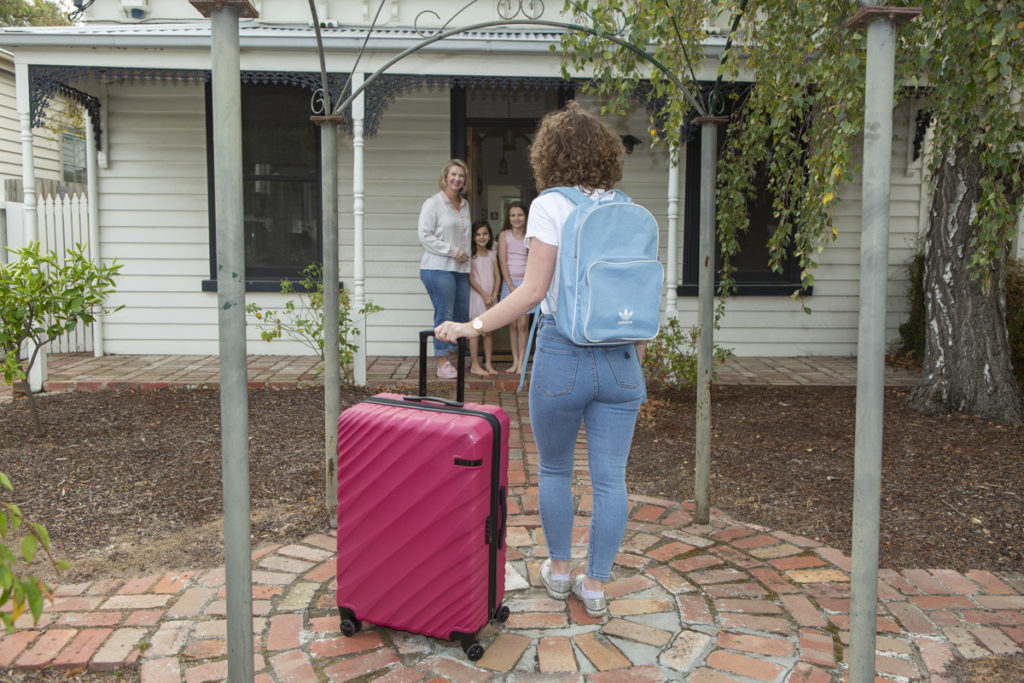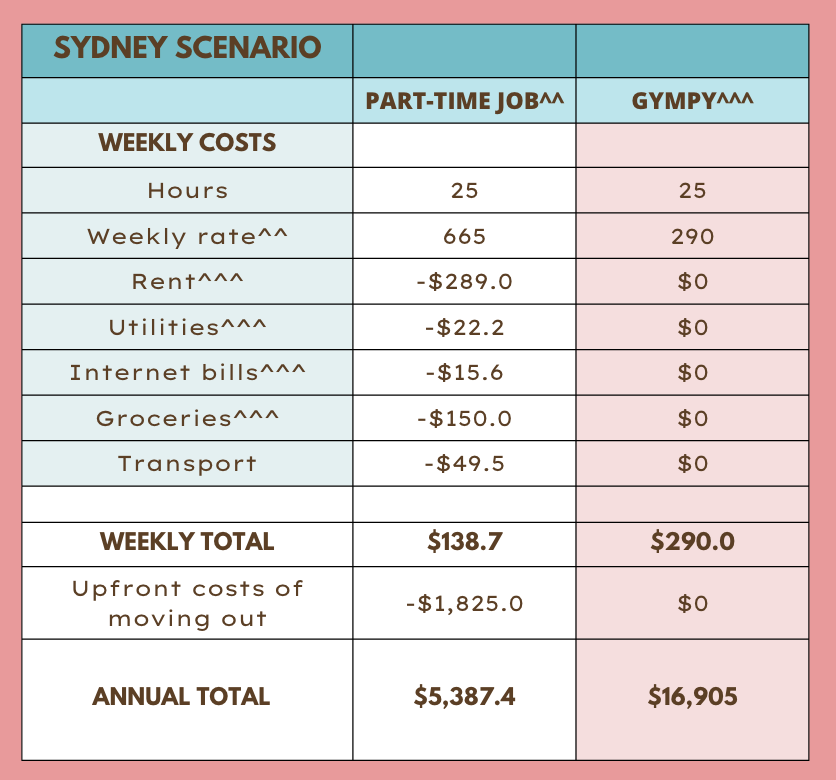Moving out of home
Read this before you spend thousands on a rental you don’t need!
So you are ready to move out of home! You are keen to
- move out of home (study, be close to a partner, be independent)?
- experience a different, aspirational lifestyle, and
- challenge yourself?
If you have answered the above with a YEAH, then you are ready for your rite of passage – getting your own place.
If you are eyeing Melbourne or Sydney, two of the world’s least affordable cities (Sydney only second, Melbourne 8th) you might be in for a shock.

With upfront moving costs such as bond, furniture, and white goods, removalists can be up to $2,500 for Sydney. Ongoing costs including rent (in shared accommodation), utilities, internet, groceries, and transport to work add up quickly and can be around $526 a week in Sydney ($453 a week in Melbourne).

Moving out of home is a rite of passage, unfortunately, young people are restricted by the housing affordability and skyrocketing living costs to move out of their parents home.
“I want every young Australian to have a roof over their head! But moving out can cost thousands of dollars,” says Irene, CEO of 99aupairs.
We have designed a program that will allow young people to do so, while still working on getting their qualifications, developing their skills and figuring out what the next career step should be.
- Move out of home
- Experience a different, often an aspirational lifestyle, and
- Challenge themselves.
What is GYMPY?
With GYMPY – GAP YEAR MENTORSHIP PROGRAM FOR YOUTH we are addressing two major crises: The housing crisis and the childcare crisis.
We do this by matching young people who are keen and ready to move out from home with host families who need additional support with their kids.
Reaching beyond the the normal Au Pair (as in live-in nanny) arrangement so often enjoyed by overseas travellers in Australia, 99aupairs gives young people a taste of their career path by matching them with a family who are already working in this field (i.e. doctors, lawyers, entrepreneurs).
So young people get that first living out-of-home experience without the high price tag of renting. And families get the much-needed flexible out-of-hours care that the current childcare system does not offer. So two major crises were solved at home with existing resources, NOT billions of funding by the Government.
Listen to our chat on GYMPY with 2GB’s Bill Woods
How is this different to getting a job and renting my own place?
For budgeting purposes we have a like-for-like comparison with 25 hours part-time job vs 25 hours GYMPY, leaving a young person with $100-152 per week more with GYMPY and an annual upside of 11,500 thousand dollars vs having a part-time job.

Where do you place young people? Is it Australia-wide?
Sydney and Melbourne are among the least affordable cities in the world according to Demographia. Thus that’s where the majority of the placements are, however we offer the program Australia wide.
So far we seem to attract a lot of young people keen to move away from the countryside, from interstate to be close to their partners and to study at a university of their choice.
Can everyone join GYMPY?
Our focus is on young adults aged 18-30, who love working with children and have gained enough experience to be confident around them (babysitting, swim trainer, childrens coach), who drive (a plus) and are fun to be around.
All candidates will go through our screening process and are required to get a police check and working with childrens check and provide two references.
We usually coach them through the interview process, get an idea what their future career ambitions are and recommend best host families in the area they desire to live or the livestyle they wish to experience.
We find candidates who are curious, ambitious, eager to learn, proactive and fun – to get the most out of this experience. Personality can outweigh some of the gaps (i.e. no driving).
Who would join this program?
Meet Heather a young teaching student who was keen to move to Melbourne (from WA) and experience Melbourne from the safety of a family. She is now continuing to study while nannying on the back of added experience, new tools acquired and a reference from her placement. “Being able to live with a family and learn from them for my future career, whilst not having to pay rent and bills was great for me,” says Heather, a GYMPY participant.
Meet Abbey a young woman from regional Victoria who was looking for an affordable way to live in Melbourne while planning her next career steps. “I wanted to live in Melbourne, close to home, and have hours that allowed me to study. Being an Au Pair [GYMPY] in Hampton was perfect as I had most of the day free,” says Abbey, a local GYMPY participant who has now enrolled in a Psychology course.
Meet Jake a young man from WA who was keen to live closer to his girlfriend and needed an affordable way to live in Melbourne while working out where he will study his dream course, Film. Being the oldest of six children (youngest aged only three) and glowing references around his character, he became a great big brother for two children while saving towards getting his own place in Melbourne with his partner.
Where can I find more about GYMPY?
Sources: *https://flatmates.com.au/info/what-it-costs-to-rent-a-room-around-australia; ** https://www.savings.com.au/savings-accounts/money-saving-tips/how-much-does-it-cost-to-move-out-of-home#how; **^ top range chosen as food costs have increased 30-50% https://www.abc.net.au/news/2022-05-17/food-inflation-hits-decade-high-amid-war-weather-and-pandemic/101034790; ^^ 25 hours assumed rate for a driver with childcare qualification, experience looking after children and full driver’s license. A wage increase from July 1 is included in both examples for representation purposes. Less experience and qualifications may result in pocket money at a minimum wage rate.; ^^^ The first 15 hours go towards accommodation and board in exchange for flexible support. All other hours are paid as stipend for each hour worked.